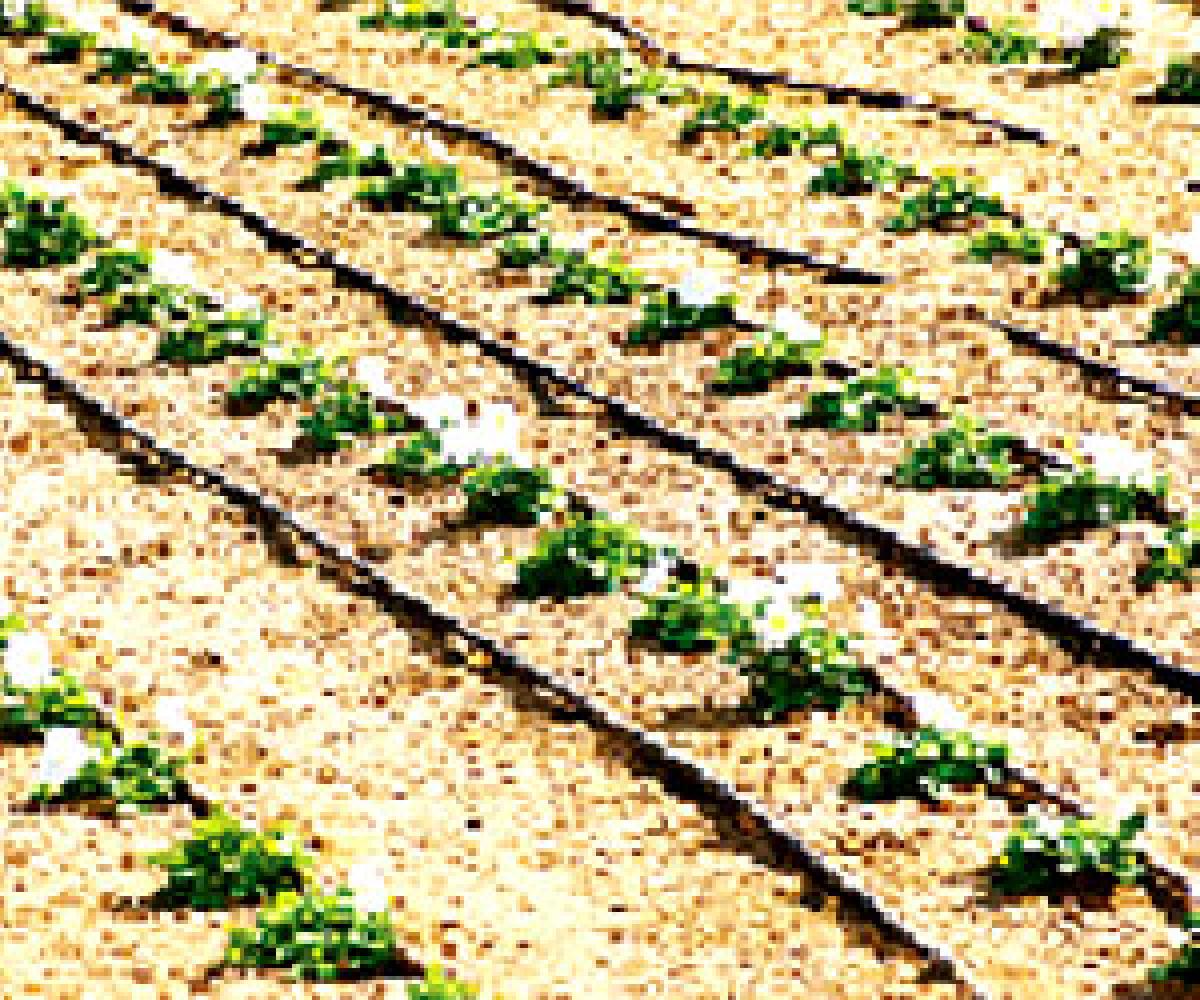Live
- GMR Airports Unveils AI-Powered Digital Twin Platform to Transform Airport Operations
- India poised to become leading maritime player: PM Modi
- Top Causes of Kidney Stones and How to Recognize Silent Symptoms
- India’s renewable energy capacity logs 14.2 pc growth at 213.7 GW
- Winter Session of Odisha Assembly adjourned sine die
- Biden calls Trump's tariff approach 'major mistake'
- After Drama Over Eknath Shinde’s Chief Minister Race, Maharashtra Cabinet Formation Faces New Tensions
- Egyptian FM, Blinken discuss recent developments in Syria
- Iran's supreme leader says Syria's developments result of US-Israeli 'plot'
- Elon Musk to Purchase $100 Million Luxury Mansion Next to Donald Trump's Mar-a-Lago, Report Reveals
Just In

The Prakasam district administration is planning to make the district as 100 per cent dependent on micro irrigation. The micro irrigation
Ongole: The Prakasam district administration is planning to make the district as 100 per cent dependent on micro irrigation. The micro irrigation project officials are now eyeing the farmers in the drought-hit district and convincing them to use the sprinklers and drift irrigation methods to get more produce with less expenditure.
Prakasam district receives less rain fall every year and all 56 mandals were being hit by drought for the past few years. The farmers in the western area of the district like Markapuram, Giddalur, Yerragodapalem, Dornala are spending thousands of rupees to dig bore wells to get abundant water for the farms. The sweet lime and mango farms in the district also require water on timely intervals for the best production, or else the farmer incur losses. As there is no perennial water source to the district, most of the agriculture in the district is dependent on water release from Nagarjunasagar canal and borewells. But, water available in them is not enough to supply to all acres.
The micro irrigation project in Prakasam district was started in 2003-04. Since then up to 2014-15, it covered a total of 26,288 hectares of land in which, 17,843 hectares of land is through drip irrigation and 8,445 hectares of land is through sprinklers. As the importance of water conservation is increased, the APMIP covered 6,057 hectares of land in 2015-16. Based on the impact of drought and demand from farmers, the department has revised the target for this year up to 15,000 hectares.
Prakasam District Collector and other officials concerned have set a goal to make the district as 100 per cent dependant on micro irrigation. Y Vidya Sankar, deputy director of horticulture, said: “Most of the beneficiaries of micro irrigation schemes are horticulture farmers. The sweet lime is cultivated in 11,500 hectares through drip irrigation in the district. The second spot is occupied by chillies with 1,400 hectares. The micro irrigation can be used not only in horticulture, but also in agriculture and sericulture. This method is proved to give 40 to 100 per cent extra produce when used in pulses, oil seeds, cotton, corn, sugar cane etc.
To encourage the farmers adapt to the micro irrigation, the government has lifted restrictions and increased the subsidy. RVV Naga Murali, assistant project director of micro irrigation department said, “The government has increased the maximum subsidy limit for drip irrigation from Rs 1 lakh to Rs 2 lakh now. For the SC and ST farmers, who own below five acres land, get 100 per cent subsidy, while other small farmers below five acres get 90 per cent subsidy.
Naga Murali said, “Every farmer with an assured water source can become a beneficiary under the micro irrigation project. We will give permission to each and every eligible farmer within 20 to 25 days and there is no need to pay anyone extra for getting the sanctions. The Prakasam district farmers should come forward and help achieve the goal to make the district numero uno in micro irrigation projects.”

© 2024 Hyderabad Media House Limited/The Hans India. All rights reserved. Powered by hocalwire.com







